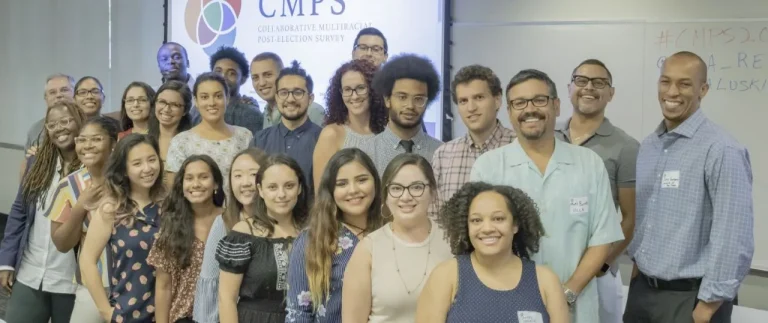Does Computer Science Require Math? Examining The Math In Cs
If you’re exploring computer science careers, you may be wondering – does computer science require math? With complex programming languages and algorithms involved, it’s a fair question to ask. In this comprehensive guide, we’ll analyze the role math plays in computer science education and careers.
We’ll look at specific math topics covered, examine math-heavy CS fields, and provide tips for succeeding with the math components.
If you’re short on time, here’s the quick answer: Yes, math is fundamental to computer science, especially concepts like discrete math, statistics, calculus, and algebra. While not all areas of CS require advanced math, mathematical competence is key for mastering programming languages, developing algorithms, analyzing data, and operating effectively in most computer science careers.
Key Math Topics in Computer Science Courses
Discrete Mathematics
Discrete Mathematics forms the foundation of many computer science concepts and is an essential topic in computer science courses. It deals with mathematical structures that are fundamentally different from continuous mathematics.
This branch of mathematics focuses on sets, logic, relations, functions, and combinatorics. Understanding discrete mathematics allows computer scientists to analyze algorithms, design efficient data structures, and solve complex problems efficiently.
For example, graph theory, a subfield of discrete mathematics, is widely used in computer science to model and solve problems related to networks, algorithms, and data structures. It helps in understanding the behavior of algorithms and their efficiency.
Calculus/Linear Algebra
Calculus and Linear Algebra are also important math topics in computer science. Calculus is used to analyze algorithms and determine their time complexity. It helps in understanding how algorithms perform as the input size increases.
Linear Algebra, on the other hand, is used in computer graphics, machine learning, and data analysis. It provides the tools to manipulate and analyze large datasets efficiently.
For example, in machine learning, linear algebra is used extensively to represent and solve systems of equations, perform matrix operations, and optimize algorithms. Understanding calculus and linear algebra allows computer scientists to optimize algorithms and make informed decisions in various computational tasks.
Statistics and Probability
Statistics and Probability are crucial math topics in computer science that help in analyzing data and making informed decisions. Understanding statistics allows computer scientists to collect, analyze, and interpret data accurately.
Probability theory, on the other hand, helps in modeling uncertainty and making predictions.
For example, in data analysis and machine learning, understanding statistics and probability is essential to analyze and interpret data, build statistical models, and make accurate predictions. It enables computer scientists to identify patterns, trends, and correlations in data, which are crucial in various real-world applications.
Algorithms and Logic
Algorithms and Logic are fundamental concepts in computer science that rely heavily on mathematical reasoning. While not strictly math topics, they are closely related and require logical thinking and problem-solving skills.
Understanding logic helps in designing and analyzing algorithms, ensuring their correctness and efficiency.
For example, in algorithm design, computer scientists use mathematical logic to prove the correctness of algorithms and analyze their time and space complexity. Logic is also essential in understanding formal verification techniques, which ensure that software systems behave as intended.
Computer Science Careers Requiring Math
Software Engineering
Software engineering is a field within computer science that involves the design, development, and maintenance of software systems. While it is possible to work as a software engineer without an extensive background in math, a solid understanding of mathematical concepts can greatly enhance one’s problem-solving skills and ability to write efficient and optimized code.
Math is particularly important in areas such as algorithm design and analysis, which form the foundation of software development. Additionally, knowledge of discrete mathematics and logic is valuable for building robust and reliable software systems.
Data Science
Data science is an interdisciplinary field that combines computer science, statistics, and domain knowledge to extract meaningful insights from data. In data science, math plays a critical role in various aspects of the job, including data analysis, statistical modeling, and machine learning algorithms.
Proficiency in mathematical concepts such as linear algebra, calculus, and probability theory is essential for understanding and manipulating data, as well as building predictive models. Data scientists often use statistical methods to analyze data and make data-driven decisions, making math skills a valuable asset in this career.
Artificial Intelligence
Artificial intelligence (AI) is a branch of computer science that focuses on creating intelligent machines capable of performing tasks that typically require human intelligence. Math is fundamental to AI as it provides the theoretical framework for many AI algorithms and techniques.
Concepts from linear algebra, calculus, probability, and statistics are used extensively in machine learning, natural language processing, computer vision, and other areas of AI. By understanding the mathematical underpinnings of AI, professionals can develop more advanced and sophisticated AI systems.
Scientific Computing
Scientific computing involves using computer simulations, mathematical models, and numerical methods to solve complex scientific and engineering problems. In this field, math is not just a requirement but a core component.
Scientists and engineers rely on mathematical models to simulate physical phenomena and analyze experimental data. Advanced mathematical concepts such as differential equations, numerical analysis, and optimization are essential for accurately modeling and solving these complex problems.
As computer simulations become more advanced, the need for mathematical expertise in scientific computing continues to grow.
Succeeding with the Math in Computer Science
Take Relevant High School Math Courses
In order to succeed in computer science, it is important to have a strong foundation in math. While computer science does involve mathematical concepts, it is not necessary to be a math genius to pursue a career in this field.
However, taking relevant high school math courses can greatly benefit students who are interested in computer science.
High school math courses such as algebra, geometry, and calculus provide the necessary mathematical skills and problem-solving techniques that are applicable to computer science. These courses help students develop logical thinking and analytical reasoning, which are essential for understanding and solving complex algorithms and equations in computer science.
Utilize Campus Math Resources
Once in college, it is essential for computer science students to take advantage of the math resources available on campus. Most universities have math tutoring centers, where students can seek help from experienced tutors who specialize in various areas of math.
These tutoring centers offer one-on-one assistance, group study sessions, and review materials to help students grasp difficult math concepts. Additionally, universities often have math clubs or organizations where students can collaborate and learn from their peers.
It is important for computer science students to actively engage with these resources to strengthen their math skills and overcome any challenges they may face in their coursework.
Find Study Partners and Support Groups
Studying math can be daunting for some students, but finding study partners or joining support groups can make the learning process more enjoyable and effective. Collaborating with classmates who are also studying computer science can provide a supportive environment to ask questions, share insights, and work through challenging math problems together.
Creating study groups or participating in online forums dedicated to computer science and math can also be beneficial. These platforms allow students to connect with like-minded individuals, exchange study materials, and seek assistance when needed.
Remember, you are not alone in your math journey. Finding study partners and support groups can make the process more enjoyable and help you overcome any obstacles you may encounter along the way.
Get Additional Tutoring If Needed
If you find yourself struggling with math in computer science, don’t hesitate to seek additional tutoring. Many universities offer specialized tutoring services for computer science students who need extra support in math.
Private tutors or online tutoring platforms can also provide personalized instruction tailored to your specific needs. These tutors can help clarify difficult concepts, provide additional practice problems, and offer guidance on how to approach math-related assignments and projects.
Remember, asking for help is not a sign of weakness. It is a proactive step towards strengthening your math skills and ensuring your success in computer science.
Conclusion
While not all computer science careers require advanced mathematics, having a solid grasp of key math concepts is indispensable for mastering programming languages, developing effective algorithms, and working in many technical computing fields.
With proper preparation and support, students of all math skill levels can thrive in computer science programs and beyond.







